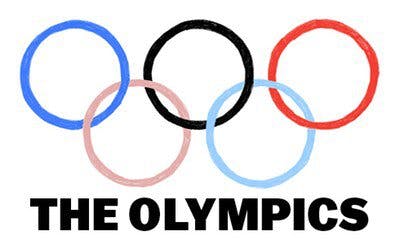
The first time I saw Emosi Naisaramaki play was on a warm Saturday afternoon in April 2002, at Inverleith Park, in Edinburgh. I was playing for my club, Heriot’s F.P. against a team from the Royal Scots, a British Army regiment, in the final of the Edinburgh Northern rugby sevens tournament. By some quirk of army recruitment, the Royal Scots had many Fijians in their ranks. Just as now, the island nation of Fiji had the world’s best sevens team. One member of the Royal Scots—Emosi—had played for Fiji. We were in trouble.
Rugby Sevens, which will be played for the first time at the Olympics this year, is one of the world’s toughest and most beautiful sports. In the full version of rugby, teams of fifteen compete to score the most tries (grounding the ball over the opponent’s line, for five points), conversions (a kick over the posts after a try, for two points), and penalties (kicking the ball over the posts after an infraction by the opposition, for three points). In sevens, those rules still apply, but only seven people compete on each side, on a full-sized pitch. The game is exhausting—sprint, wrestle, pass, tackle, repeat—and it rewards nimble players with vision and élan. In short, sevens was designed for Emosi.
In our final in 2002, we were ahead at half-time, somewhat to the crowd’s surprise. I remember thinking we might win the game if we could just keep the ball. We couldn’t, and we didn’t. In the second half, Emosi roused himself from whatever slumber he had fallen into, and scored five tries. I’ve never seen anybody before or since score five tries in one half of sevens.
He was short for a rugby player, maybe 5’ 9’’, with bullish thighs. But what made him different—what made people laugh when they saw him play—was his wit. To beat a defender, Emosi would almost stop running, and invite a tackler onto him. Then, at the last millisecond, he would either sidestep several feet, or, sensing the defender expecting a sidestep, dart straight on. Whatever he chose to do, you were screwed. The comedy lay in the space between where the defender thought Emosi was going to be, and where he actually was. There was no way for a lummox like me to get close to a sprite like him.
The following season, our club signed Emosi, and I had the pleasure of being his team-mate rather than his quarry. Despite watching him train, I never understood how he was able to play as he did. I imagine the experience is similar for Steph Curry’s team-mates. There is a point at which you stop trying to comprehend why an athlete is on a higher plane, and start concentrating on getting him the ball.
Emosi only ever represented Fiji one more time—partly because of his service in Iraq and Afghanistan—but Fiji continues to play the Emosi way. All professional sevens teams are now strong and fast, but Fiji retains that delight in the unexpected. They will be gold-medal favorites at the Olympics, despite hot competition from South Africa, New Zealand, and even the U.S.A. When I watch them play, I will think of a happy afternoon fourteen years ago, when Private Naisaramaki made a fool of me.
